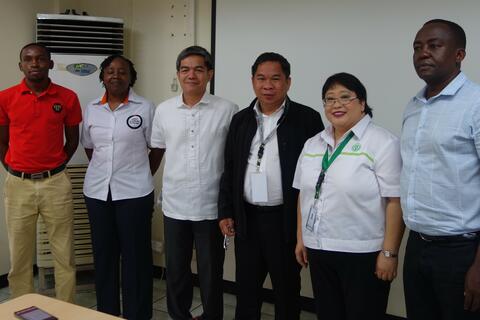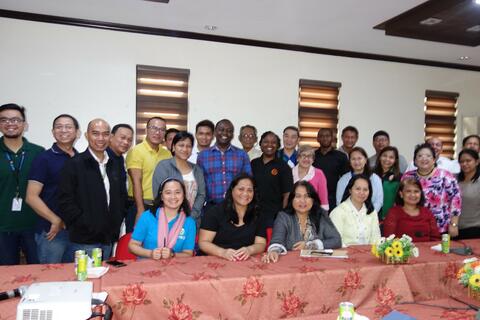African experts learn from rabies programs in the Philippines
- Community News
Our team of rabies specialists from World Animal Protection in Africa and from Makueni County in Kenya traveled to the Philippines to evaluate the archipelago’s recent successes with their rabies control programs and to gather new ideas on rabies elimination. GARC and various Philippine research and governmental health organizations met with our team during a five-day visit in July, providing tours of in-country rabies control programs and offering their insights on how to build effective rabies control initiatives.
Showcasing the Philippine rabies programs in this way allowed us to benchmark our own newly implemented domestic rabies control programs and to gain the knowledge needed to implement the next phase of a new pan-African rabies control campaign. This exchange was made possible by GARC, a long-term partner of rabies elimination programs in the Philippines and a partner of World Animal Protection and our global efforts.
During our visit, we met with several different Philippine government organizations, including the Bureau of Animal Industry in the Department of Agriculture, the Disease Prevention and Control Bureau of the Department of Health, and the Research Institute for Tropical Medicine. While visiting the Ministry of Health, we learned how surveillance systems operate in individual barangays (villages) and how the treatment of dog bites and rabies is undertaken in an Animal Bite Treatment Center. We also visited the local governments of Metro Manila such as the cities of Muntinlupa, Marikina, and Quezon. In these meetings, we improved our knowledge of the One Health Initiative in terms of politics and delivery and how this program runs both at national and sub national levels.
Elimination was once considered impossible in the Philippines, but recent successes with their national rabies program lies in the collaboration between different sectors such as human health, animal health and education–which ensures that dogs are kept vaccinated against rabies and any potential exposures receive life-saving vaccinations. This success has been mainly driven by initiatives such as intensive dog vaccination, surveillance and education pilot programs. Philippine community health workers have also been trained to support veterinarians, and together they have organized vaccination and education drives.
Our team observed that various town councils have ongoing rabies education programs in schools from the kindergarten level onwards, as well as community education programs that cover topics such as dog welfare and dog bite prevention. When visiting the Research Institute for Tropical Medicine, we learned how medical and human researchers work together on pre- and post-exposure rabies treatments, national disease surveillance, and the development of easy-to-use rabies test kits for provincial laboratories at the local level. In smaller cities, we also investigated local education programs on dog vaccination, rabies control, and bite management, as well as municipal legislation on dog vaccinations and how these laws are put into practice.
After touring these rabies control programs in the Philippines, we found several key points for success, in particular that successful programs are: 1) supported financially at the local and national levels, 2) education programs are included in the school curriculum and positively impact dog welfare and vaccination rates, and 3) government ministries have an integrated approach to implementing rabies elimination programs.
The World Animal Protection team acquired a lot of knowledge from this exchange with the Philippines rabies program experts and gathered insights into successful education, legislation, and rabies advocacy programs to put into practice when we return to Africa for the next phases of our own mass dog vaccination and reproductive control campaigns.
Contributed by Dr. Emily Mudoga and Lucy Wangiku of World Animal Protection Africa, with thanks to the Bureau of Animal Industry in the Philippines, specifically to Dr. Emelinda Lopez (National Rabies Focal Person) for organizing the five-day visit.

